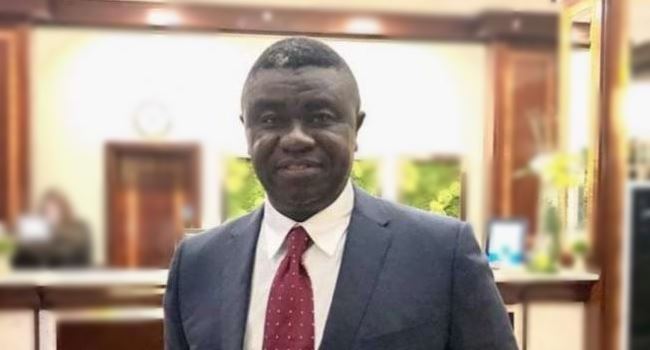Business
Nigerian govt spends N1.57trn on debt servicing in 6 months

Nigerian government’s spending on debt servicing came to N1.57 trillion in the first half of the year, Minister of State for Budget and National Planning, Clem Agba, has said.
He made the disclosure in a presentation released on Sunday in Abuja by his Special Adviser on Media, Ojeifo Sufuyan.
Africa’s biggest economy has been racking up debts in recent times to fund various infrastructural projects and its spending plan for this year because proceeds from oil, which contributes nearly 60% of government’s revenue, has been coming in trickles in the fallout of the recent oil crash and the coronavirus outbreak.
This has ramped up its debt service to revenue ratio to around 99%, meaning Nigeria spends N99 of every N100 it makes on debt service.
The World Bank prescribes debt service to revenue ratio of not more than 22% even though Nigeria is looking on to the multilateral lender to grant her a $3 billion budget support loan before the month ends.
Agba said N9.97 trillion of government’s expenditure performance was appropriated while N4.45 trillion, translating to 89.3% of the pro rata N4.99 trillion was expended.
He stated that N1.57 trillion out of the expenditure went to debt servicing just as N1.61 trillion was for personnel cost including pensions.
According to the minister, just N444.75 billion had been released for capital expenditure by June 2020 owing largely to budget revision.
He observed that Nigeria had reduced its oil output by 300,000 barrels per day in compliance with the agreement reached by the Organisation of the Petroleum Exporting Countries (OPEC) and its allies.
‘Crude oil prices declined sharply in the world market, with Bonny Light crude oil price dropping from a peak of $72.2 per barrel on January 7, 2020 to below $20 per barrel in April 2020.
‘In effect, the $57 crude oil price benchmark on which the 2020 budget was based became unsustainable.
‘Another key development in the international crude oil market is the massive output cut by OPEC and its allies (OPEC+) to stabilise the world oil market, with Nigeria contributing about 300,000 barrels per day of production cuts,’ he said.
Read also: Domestic debt servicing gulps N609bn of govt’s revenue in Q1 –DMO
Mr Agba went further to say that ‘the impact of these developments is about 65 per cent decline in projected net 2020 government revenues from the oil and gas sector, with adverse consequences for foreign exchange inflows into the economy.’
He disclosed that the Nigerian government’s retained revenue N1.81 trillion, 68% of the prorate target as of 30th June.
Government’s share of oil revenue was N859.1 billion, representing 169.48% performance over the prorated sum in the revised 2020 budget.
Non-oil tax revenues added up to N581.23 billion, translating to 72% of the revised target.
‘Companies Income Tax and Value Added Tax collections were N301.06bn and N85.4bn, representing 73 per cent and 60 per cent respectively of the pro rata revised targets for the period.
‘Customs collections was N184.36bn (82 per cent of revised target), while other revenues amounted to N372.04bn, a lowly 28 per cent of target,’ the minister said.
Agba stated that the NLNG dividends, recoveries and stamp duty collected in the review period were yet to be booked in the fiscal accounts.
Join the conversation
Support Ripples Nigeria, hold up solutions journalism
Balanced, fearless journalism driven by data comes at huge financial costs.
As a media platform, we hold leadership accountable and will not trade the right to press freedom and free speech for a piece of cake.
If you like what we do, and are ready to uphold solutions journalism, kindly donate to the Ripples Nigeria cause.
Your support would help to ensure that citizens and institutions continue to have free access to credible and reliable information for societal development.
























